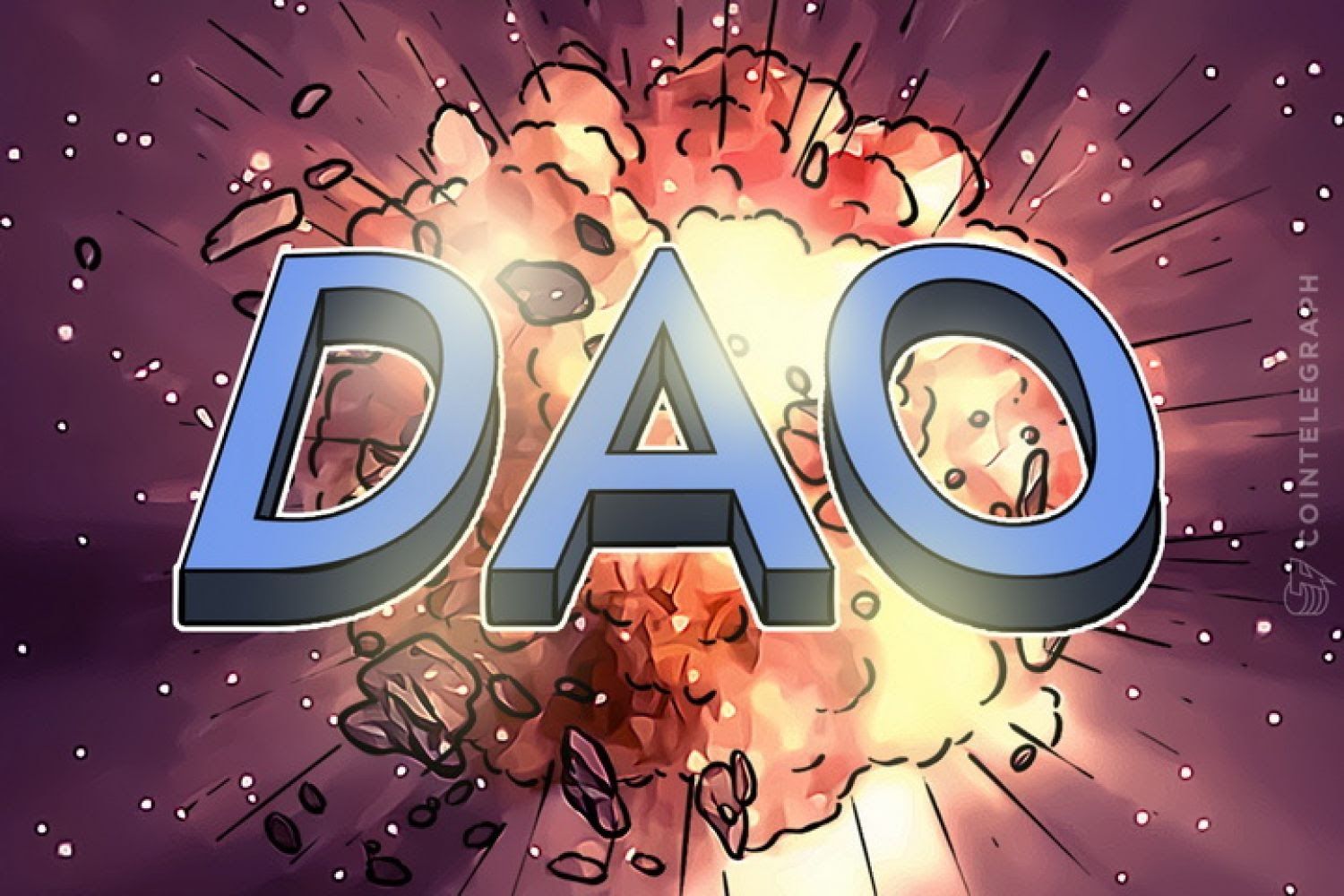Intro to Decentralized Autonomous Organizations (DAOs) & How to Leverage Common Protocol For DAO Governance

Introduction
The adoption of blockchain technology globally has created a lot of important advancements in both the technology itself and the social structures that make up the ecosystem surrounding the technology. One of the popular blockchain ideas is the use of decentralized autonomous organizations. This article will discuss what decentralized autonomous organizations actually are, the upsides and downsides of them, how they are being used today, and some potential future use cases.
What is a DAO?
A Decentralized Autonomous Organization (or DAO for short) is an organization run without the control of a central authority. Instead, DAOs leverage blockchain technology to execute a fully autonomous organization by replacing the central authority with community input. An example of a central authority is a stock exchange like the NYSE or a stock trading app like Robinhood. In a centralized organization like Robinhood, they have the power to potentially block or freeze the activities of their users. In a DAO this is not possible because a central authority holds no final say or decision making power. This shift in control gives the community that is surrounding the organization the ability to make key decisions in governance and how the organization’s resources are managed. The decision making structure and processes are done by leveraging blockchain technology. Through the use of this tech, self-executing code is created in a fully transparent setting. This code adheres to a set of organization rules and comes with a full history of activities that it has carried out.
Instead of a hierarchical structure like in the traditional for-profit financial sector where decision making power is given to a select few, all members of the community in a DAO have decision making authority. DAOs use economic mechanisms to align community members towards a common goal usually through the use of incentives that are tied to the consensus rules written into the DAO’s source code.
In summary, DAOs allow individuals and groups to collaborate towards a common goal without having to trust each other and without having to rely on a central authority.
Upsides of DAOs
Holistic Value Creation
The idea of a DAO is to allow for a more holistic approach on value being added. Instead of the organization strictly working towards the financial gain of its users, DAOs are able to work towards attaining other types of value relating to the environment, a sense of community, and sustainability. This is done by management becoming a facilitator of the community’s activities rather than a gatekeeper like in traditional organizations.
Global Benefits
Instead of adhering to traditional financial and legal institutions, DAOs operate on blockchain parameters meaning they can be almost instantaneously created without much friction. This creates a lower barrier to entry for both communities and people making a DAO. Since they operate on internet native blockchain technology, DAOs are not restricted by international borders either. This means job and other value creation can be easily accessible globally.
This lack of restrictions that both traditional institutions and international borders have makes DAOs more accessible than legacy organizations.
Potential Issues of DAOs
Legal Issues
DAOs have not been around for a very long time and are still very much in a development and discovery phase. Therefore, the legal jurisdictions that DAOs fall under are still yet to be determined by anyone internationally. This may present a challenge as the presence of DAOs inevitably grows.
Malicious Use Cases
DAOs have the desirable qualities of being trustless, immutable, and decentralized. These qualities are appealing to everyone including parties that wish to perform malicious activities. The scope of how malicious activities affect DAOs both on the management side and in the community is another aspect of DAOs yet to be discovered since they are so new.
Examples of DAOs
Dash
Dash is a DAO and also an open-source, peer-to-peer cryptocurrency. Dash allows for instant payments and transactions for both individuals and businesses at a fraction of the cost of similar but more traditional solutions. You can use Dash for almost any transaction including buying coffee and paying for business services.
Moloch DAO
Moloch DAO was created for the purpose of providing grants to improve the Ethereum blockchain ecosystem. This DAO is essentially a decentralized and equity-free venture capital organization operating in the Ethereum blockchain ecosystem. This means that funding is dispersed according to what a good chunk of the Ethereum community actually wants instead of what a select few venture capitalists want. This community decision making also increases the odds of the project being successful within that same community.
DAO Governance & Common Protocol
How community members manage the activities and resource allocation of a DAO is through governance processes. In a decentralized setting, the main governance activities are a member sending in a proposal of a change that they’d like to see and then other community members voting on if they want to see that change made or not. Long form discussions are held within the community to better understand what the proposal entails and how the DAO (and in turn the community) will benefit. Other processes that are community managed include hiring, bug fixing, and building new features
DAO Governance Barriers
Facilitating the governance of a decentralized organization in a way that’s accessible to all members of the surrounding community is a complex and difficult task. Since DAOs are relatively new, facilitating their governance has not always been easy and sometimes means trying to get the community to participate on 3 or more separate platforms that don’t even have all the capabilities that the DAO needs to be properly governed. The Common platform brings all of the necessary governance tools that DAOs use into one platform in a crypto-Reddit like setting while being integrated into on-chain events. All of the activities done on Commonwealth are open by default, done completely transparently, and allow community members to manage capital associated with the DAO. For a DAO, this all-in-one tool that has these default-open characteristics is not just nice to have but is essential for proper governance.
Future DAO Possibilities
We are really just starting to understand the full potential of what DAOs can contribute to society. The fluidity and flexibility that DAOs provide also allow for rapid testing of different structures and voting mechanisms. There are tons of possibilities for DAOs that have yet to be tried out.
We could see DAOs almost merge together and work in conjunction with each other in the near future. An example of this is meta-governance where a DAO votes on a number of different other DAOs and sub-protocols. DAOs can also create an equal playing field for all participants by making every community member anonymous.
Another cool use case of a DAO could be managing an e-sports or sports organization where a community replaces the owner role on the team. This could make for some interesting player, coach, and GM hiring decisions.
There are a ton of valuable use cases of DAOs that are yet to be uncovered.
Team Contributor to this post: Rhys Hillier

